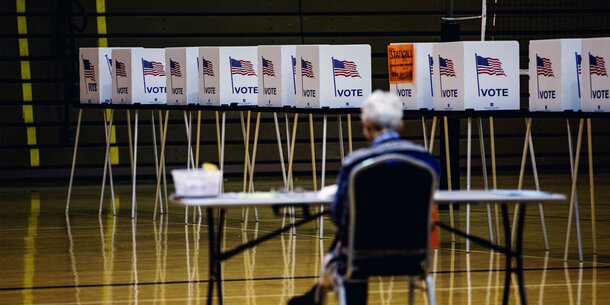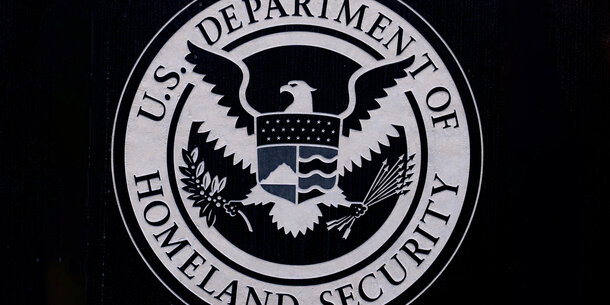As next Tuesday’s first presidential debate fast approaches, there is continuing concern over how the moderators and the networks will handle fact-checking. Ever since John Kennedy and Richard Nixon faced off in the TV studios of WBBM in Chicago in 1960, televised presidential debates have featured the candidates slinging dubious statistics and ill-substantiated claims.
But Donald Trump’s brazen history of overt lying has elevated the fact-checking problem to stratospheric levels. As the Associated Press, not known for hyperbole, put it in the opening sentence of a recent article, “Playing defense on his handling of the coronavirus, President Donald Trump is letting the falsehoods fly.”
Biden, in fact, said last month, “I’m gonna be a fact-checker on the floor while I’m debating him.” If that indeed represents Biden’s debate strategy, it would be a task worthy of Sisyphus. CNN’s Daniel Dale, who obsessively tracks the president’s false claims, documented 25 misstatements during a recent Trump rally in Milwaukee. And in July, the Washington Post announced that, according to its calculations, Trump had made more than 20,000 “false and misleading claims“ since he took office.
In reality, candidates are ill-suited to serve as debate fact-checkers. Not only do they lack impartiality, but they also lack time, since debates traditionally demand two-minute answers. In 120 seconds, even a candidate with the speaking style of an old-time tobacco auctioneer could not both answer the moderator’s question and offer a detailed critique the factual errors in his opponent’s prior response.
Then who should rein in a reign of error? Are voters at the complete mercy of duplicitous candidates peddling ersatz claims?
The Commission on Presidential Debates does not regard fact-checking as part of its mandate. Frank Fahrenkopf, a co-chair of the commission, said recently, “There are a lot of fact-checkers, and the minute the debate is over, you can go on any network, you can pick up your paper the next morning, and they’re all going to be there. It’s not our job to be the fact-checker. It’s our job to put on the debate.”
This approach makes fact-checkers the political equivalent of street cleaners, sweeping up the debris after a debate. In theory, television networks have the option of adding fact-checking materials at the bottom of the TV screen to augment the news feed provided by the debate commission. But there is no evidence that any network will go this route.
Onscreen fact-checks delivered at warp speed during a debate would bring with them another problem — false equivalence. Not all factual errors are of equal gravity.
For example, Biden has been faulted for saying that President Obama saved the auto industry, since this political boast glosses over the prior efforts of President Bush after the 2008 financial collapse. And despite the strenuous denials of scientists both inside and outside the government, Trump last week claimed that America will “be able to distribute at least 100 million vaccine doses by the end of 2020.”
There is no way that these two debunked comments are equal. Biden has been guilty of standard political exaggeration. Trump, in contrast, was fanning false hope in the middle of a pandemic. But if voters had to react based solely on brief fact-checks at the bottom of the TV screen, they might decide that both candidates were similarly guilty of distorting the truth.
In the end, it all comes down to the debate moderators, who have three methods at their disposal to keep the back-and-forth on a higher factual plane.
Fahrenkopf’s wariness about mid-debate factual corrections probably stems from moderator Candy Crowley’s fast-on-the-trigger approach during a 2012 debate between Obama and Mitt Romney. Crowley broke in to correct Romney when the GOP nominee claimed that Obama had waited two weeks to call the attack on the American facility in Benghazi, Libya, “terrorism.”
If only things on the fact-check beat were simple. Writing recently about the Crowley incident for the Columbia Journalism Review, Bill Grueskin explained, “The truth was somewhere in the middle.” Obama had indeed used the word “terrorism” immediately after the attacks, but only in the vaguest of ways. After the debate, that ambiguity was enough to spawn major partisan arguments about whether Crowley had overstepped her role in challenging Romney.
Wry incredulity is a second way that a moderator can signal that a candidate has escaped the factual bonds of reality. Max Frankel of the New York Times perfected this approach during the second 1976 debate between Gerald Ford and Jimmy Carter. Ford veered off during an otherwise unmemorable answer on the Helsinki Accords to declare, “There is no Soviet domination of Eastern Europe and there never will be under a Ford administration.”
Debate gaffe is an over-hyped expression. But Jeff Greenfield in his book of alternate political histories, Then Everything Changed, advances the notion that Ford would have won the close 1976 election if only he had immediately corrected himself during the debate.
Frankel certainly gave Ford the opportunity. In a deft response, Frankel said, with amazement dripping from his voice, “I’m sorry, what? Did I understand you to say, sir, that the Russians are not using Eastern Europe as their own sphere of influence … and making sure with their troops that it’s a communist zone?”
Like a man determined to go over Niagara Falls in a barrel despite rescuers shouting from the shore, Ford persisted. He stubbornly claimed that countries like Romania and Poland “don’t consider themselves dominated by the Soviet Union. Each of those countries is independent, autonomous.”
During the 2020 debates, there may be jaw-dropping moments when it would be appropriate for a moderator to ask, “I’m sorry, what?” Possible examples include Trump repeating his claims from early in the pandemic that bleach is a possible cure for Covid-19 and that the virus will mysteriously disappear by itself. But to be effective, the Frankel gambit has to be used sparingly.
The third and most promising approach would be for the moderators to offer fact-checks before debate answers rather than after them. Let me stress that I am not expecting clairvoyance. But many of the serious distortions of the truth by the candidates can be anticipated, since these factual misstatements are often applause lines at rallies and familiar refrains at press conferences.
Let me give an example. When the topic in the first debate turns to Covid-19, it is almost certain that Trump will boast that America, under his leadership, has done the best job in the world at containing the virus. Instead of letting Trump again make this fallacious claim, the moderator (Chris Wallace of Fox News) might ask a question analogous to this: “Mr. President, can you explain why Germany had 13 deaths from the coronavirus on September 22 but in America on the same day the death toll was 942?”
This approach is not foolproof — and it offers no protection against debate lies that have been concocted on the spot. Also, if a question quotes a candidate’s prior statement, that candidate might take the extreme step of denying that he ever said it. An elegant solution would be to allow the debate moderator to show a TV clip of the candidate making the statement in question.
In the end, presidential debates cannot rise above the tenor of the campaign or the candidates. Fact-checks — whether delivered during a debate or afterwards — cannot transcend a culture of mistrust fostered by cries of “fake news!” But artful moderators can help guard against extreme statements and outright lies when the candidates stand at dueling platforms on a debate stage.
The views expressed are the author’s own and not necessarily those of the Brennan Center.



